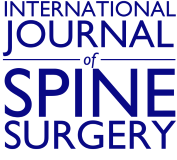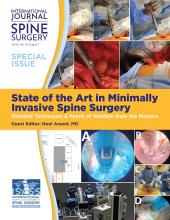ABSTRACT
Background Anterior cervical discectomy and fusion (ACDF) and cervical disc arthroplasty (CDA) have been used to treat degenerative disc disease at single as well as multiple cervical levels. This study compares the safety and efficacy of 1-level versus 2-level CDA and ACDF.
Methods In total, 545 and 397 patients with degenerative disc disease were studied in 1-level and 2-level Food and Drug Administration (FDA)–approved clinical trials, respectively: CDA (n = 280 and 209), ACDF (n = 265 and 188). Data from these studies were used to compare 1- versus 2-level procedures: the propensity score method was used to adjust for potential confounding effects, and adjusted mean outcome safety and efficacy scores at 2 and 7 years postsurgery were compared between 1-level and 2-level procedures within treatment type.
Results One-level and 2-level procedures had similar rates of improvement in overall success and patient-reported outcomes scores for both CDA and ACDF. There were no statistical differences in rates of implant-related adverse events (AEs) or serious implant-related AEs between 1-level and 2-level CDA. The 7-year rate of implant-related AEs was higher for 2-level than 1-level ACDF (27.7% vs 18.9%, P ≤ .036), though the rates of serious implant-related AEs between ACDF groups did not differ significantly. Secondary surgery rates were not statistically different between 1-level and 2-level procedures (CDA or ACDF) at the index or adjacent levels at 2 or 7 years. Grade IV heterotopic ossification at 7 years was reported in 4.6% of 1-level CDA patients and 8.6%/7.3% at the superior/inferior levels, respectively, of 2-level CDA patients.
Conclusions One- and 2-level CDA appear equally safe and effective in the treatment of cervical degenerative disc disease. Two-level ACDF appears to be as effective as 1-level ACDF but with a higher rate of some AEs at long-term follow-up.
Level of Evidence 2.
Clinical Trials clinicaltrials.gov: NCT00667459, NCT00642876, and NCT00637156.
Footnotes
Disclosures and COI: The institutional review board for the clinical trials was Western Institutional Review Board (1-level study: Protocol 20050083, Study 1064723; 2-level study: Protocol 20060636, Study 1078218).The authors report the following potential or perceived conflicts: MF Gornet: Consulting: Aesculap and Medtronic; Stock Ownership: Bonovo, International Spine & Orthopedic Institute, LLC, Nocimed, OuroBoros, Paradigm Spine; Royalties: Medtronic and RTI. TH Lanman: Consulting: Medtronic, Nuvasive, Stryker; Royalites: Stryker, Medtronic. J.K. Burkus: Consulting: Medtronic and Zimmer-Biomet; Royalties: Zimmer-Biomet; Research Support: Medtronic and Nuvasive. SD Hodges: Consulting: Medtronic. JR McConnell: Consulting: Globus Medical, DePuy/Synthes, IMSE; Royalties: Globus Medical; Stock Ownership: Globus Medical; Speakers Bureau: Globus Medical, Zimmerman Biomet. RG Dryer: Consulting: Royalties: Nuvasive and Globus Medical. FW Schranck: Stock Ownership: Nocimed. AG Copay: None to declare.
- ©International Society for the Advancement of Spine Surgery







